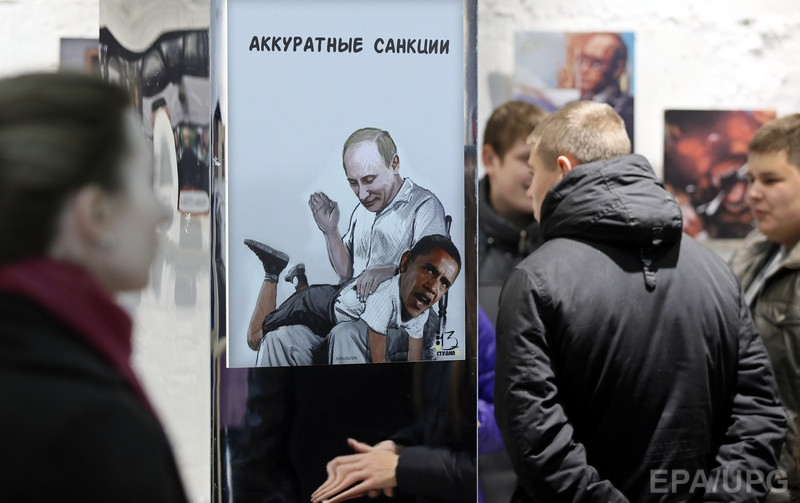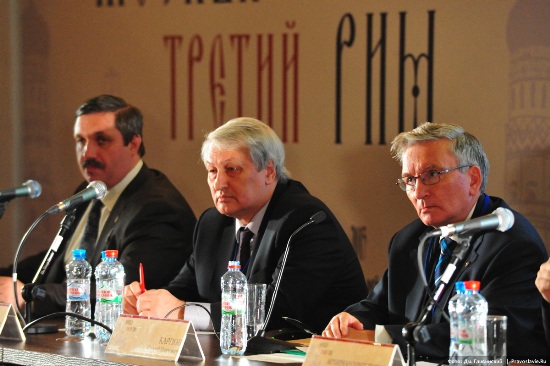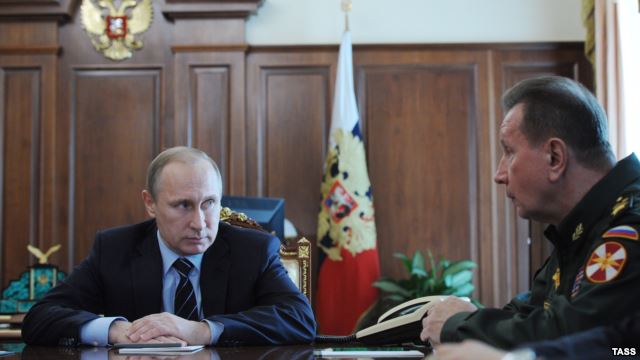A curious and extraordinarily dangerous feedback loop has emerged, Mikhail Solomatin says. Moscow projects false myths on the West and then uses those myths to justify its own actions at home and abroad – or to put it more succinctly, “Russia seeks to introduce those standards of Western civilization which it dreamed up on its own.”
This projection of Russian myths on the West is becoming increasingly a part not only of Russian ideology but also of Russian practice under Putin, the Moscow historian argues in a commentary on Kasparov.ru today and opens the way to ever greater misunderstandings and disasters in the future.
Thus, he says, Moscow puts out the myth that the US sends its troops into any country “which it considers the zone of its interests” and then the Kremlin uses that myth to “justify the seizure of Crimea and the provision of military assistance to Assad.” Its myth that the US organizes “color revolutions” is used to justify Moscow’s sponsorship of separatism in Ukraine.
Its myth that the American film, “The Tail Wags the Dog,” “reflects the principles of the foreign and domestic policy of the West led to the creation of Kiselyev-TV,” Solomatin observes. And even Putin’s blatant lying about Russian forces in Crimea reflects “a myth about the total falseness and cynicism of politicians in Western countries.”
But there is another and even more deeply “rooted’ for Russian consciousness myth” about the West, the myth “that behind the Islamist terrorists stand the CIA. This myth is old, much older for example than the one that holds that the Maidan was ‘sponsored by the State Department.’”
Given those Kremlin assumptions, Solomatin says, “it is hardly wise to ignore” the fact that “the Kremlin cannot but be thinking” about how it can use weapons it says the CIA has created for Russia’s purposes. Indeed, it would be very surprising if Putin and his entourage were not doing that.
To say that, he points out, is not to say that Moscow organized this or that terrorist action but only that its myths about the supposed Western organizers of terrorist groups is part of Kremlin thinking and helps to explain why Moscow so often succeeds in exploiting terrorist acts for its own purposes. After all, it assumes that the West is trying to do the same thing.
“The only structure which won from the destruction of the jet over Sinai and from the bloodbath in Paris and the only structure whose earlier declared goals were advanced as a result of these terrorist actions was the Putin regime,” the Moscow commentator argues.
As a result of Paris, he continues, Putin received carte blanche to isolate his own citizens from the rest of the world and a wonderful opportunity to “force the West to cooperate and forget about Ukraine.” In fact, “not for any other government of any other country of the world did the actions of the terrorists open such perspectives.”
That is what Putin was promoting at the G20 summit, and, one could add on the basis of the latest news, has succeeded in some measure given US President Barack Obama’s declaration today at the Asian-Pacific Summit that he views Putin as a reliable partner in the struggle against terrorism.
Exactly the same thing happened after the 9/11 attacks, Solomatin says. “On the basis of ‘common challenges,” the West “forgave Russia” for its Chechen campaigns, and “Putin became the best friend of Bush Junior.”
“I am far from convinced in the justice of the thesis that ‘The FSB Blew Up Russia,’ [a reference to the book linking Putin to the apartment bombings in 1999], but three things are completely obvious,” Solomatin says:
- “The Kremlin believes in the effectiveness of using Islamist terrorist in the geopolitical struggle because Russian ideologues have already for a long time accused the hated US of this.”
- “The Kremlin believes that cynicism is the basic contemporary policy.”
- “The Kremlin consistently is the main and at times the only beneficiary from the activities of Islamist terrorists, something which is not surprising given that among their enemies is not a little in common and the chief among them is contemporary Western civilization with its liberalism and human rights.”
This is not something new for Moscow, he continues. It helps to explain what made possible “the alliance of Stalin with Hitler in 1939.”
Stolomatin says he is far from “accusing Russia in the organization of terrorist actions, but it is undoubtedly the case that Russia for a long time has become at a minimum, the ideological and political backer of terrorism,” as in the case of the shooting down of the Malaysian airliner over Ukraine. Moscow may not have pulled the trigger but it supplied the weapons to those who did.
That case “illustrates the connection of Russia with international terrorism, one that is not direct but neither is it accidental or illogical,” Stolomatin continues. “Russia’s Anti-Westernism and intensified anti-Americanism,” its belief that world leadership rests on displays of military might and repression “have made it “close to those who seek to blow up the world order.”
And this, the Moscow historian says, is “only beginning.”








